Red Conure For Sale
$680.00
The Sun Conure is a remarkably striking bird – with its splash of bold colors it is truly a beautiful bird indeed. The body of the Sun Conure is a predominantly bright yellow to orange, with dark orange-red highlights around the cheeks and belly. The wings are yellow with green splashes all over and iridescent blue feathers on the wing tips. Our Sun conures for sale are tamed and handfed.
Description
- Size: 12 inches
- Weight: 100-130 grams
- Lifespan: 25-30 years
- Minimum Cage Size: 24 x 24 x 36 inches
Characteristics: The Sun Conure is a highly sociable, and affectionate bird. It is lively, fun-loving, and acrobatic, making a very playful pet that will readily learn to perform tricks. It is extremely vocal and is also very alert and an excellent watchdog; screeching loudly to herald the arrival of someone at the door, or to welcome its owner home after a hard day of work.
Sun conures are very demanding, requiring lots of attention and human interaction. They are ranked as one of the noisiest types of conures, and are therefore not recommended for apartment dwellers, or owners with a low tolerance level to noise. However, if you can put up with their screeching, they have beauty, brains, are big in character, and make amazing pets.
Care & Diet of Pet Conures
Conure parrots are delightful little birds that are colorful and full of character. Hand-reared conures make excellent pets and are extremely popular with bird lovers all around the world. Some of the more popular and readily available types of conures kept as pet birds, include the following: Sun Conure, Jenday Conure, Nanday Conure, Blue Crowned Conure, Maroon Bellied Conure, Green Cheeked Conure, Peach Fronted Conure, Dusky Headed Conure, Red Masked Conure, and the Patagonian Conure.
Conure Care
Conures are active birds, and consequently, conure bird cages need to be fairly large relative to body size, fitted with lots of toys, especially things to chew, and noisy toys like bells and rattles, to provide stimulation and prevent boredom. As they are intelligent birds that love to interact and play, it is easy to train all types of conures to perform tricks. They will readily lie upside down in the palm of your hand and play dead. They also love water, and it is recommended that a bird bath be provided – alternatively, a spray shower in hot weather will always be appreciated.
Conure Diet
A balanced diet of whole grains, fruit, vegetables, seeds, and nuts is recommended for all types of conures to ensure that they remain in good health. Feed commercial seed and pellet mix together with a variety of fresh fruit and vegetables. Conures love apple, corn on the cob, sprouted seeds, as well as a cooked mix of corn and peas, such as the mixes available for pigeons. Foods to avoid include chocolate, alcohol, onions, and avocado pear, which is highly toxic to parrots.
Personality & Behavior
Conures can be very playful, very cuddly, and, at times, very loud. A conure is more inclined to be curious and bold instead of shy and cautious. Conures are active and busy birds that need plenty of toys and other forms of enrichment to keep them happily occupied throughout the day. A conure can make a great family pet because of its playful and outgoing personality. In a family situation, children should be taught how to respectively interact with the conure, including proper handling and not forcing interaction. A conure loves to be where its people are or on them; even going so far as to climb under its owner’s shirt, head poking out of the collar, during cuddle time. Some conures will dance back and forth, and might even mimic its person’s movements. Conures can also be taught to perform tricks on cue if trained using positive enforcement.
Speech & Sound
A conure’s signature sound is a high-pitched screech, which is often emitted when the bird is excited, startled, and/or when it wants attention. Many owners make the mistake of inadvertently reinforcing a conure’s screech by running over to the cage or otherwise giving the bird direct attention whenever it begins to screech. Conures are capable of talking and, although their vocabularies are not as extensive as that of other parrot species, they can learn to speak a few words and phrases.
Health & Common Conditions
Conures can be prone to feather picking. If a complete medical exam rule out medical causes of feather plucking, boredom, and/or lack of appropriate mental stimulation can be a cause. Offer your conure an enriched environment with plenty of opportunities for play and exercise, as well as a staple supply of safe items to chew. Conures are also susceptible to Proventricular Dilatation Disease (PDD), Psittacine Beak and Feather Disease, Psittacosis, beak malocclusion, and Aspergillosis. Regular health checkups by an avian veterinarian are crucial to your conure’s health, as they can help diagnose and treat many disease processes early on.

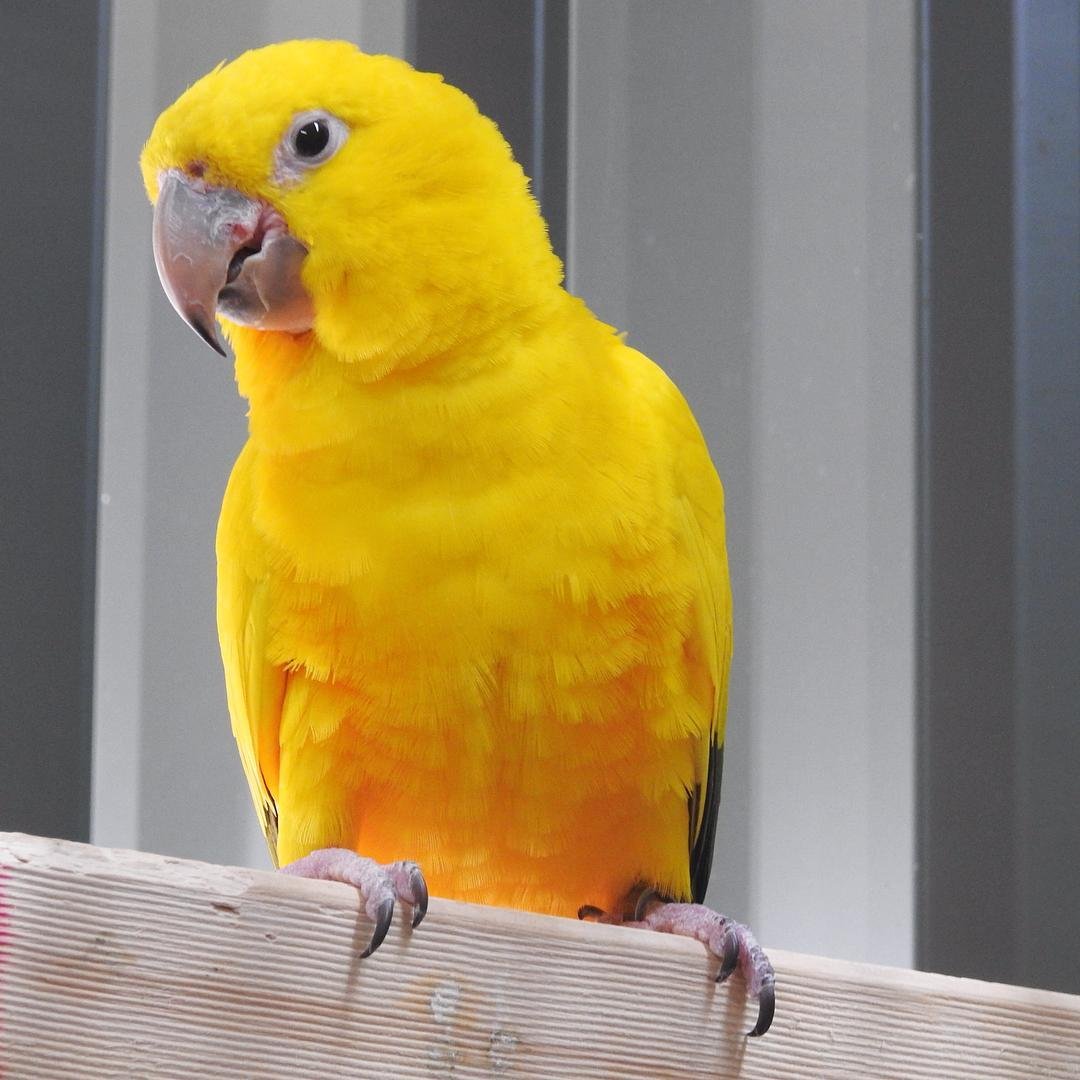
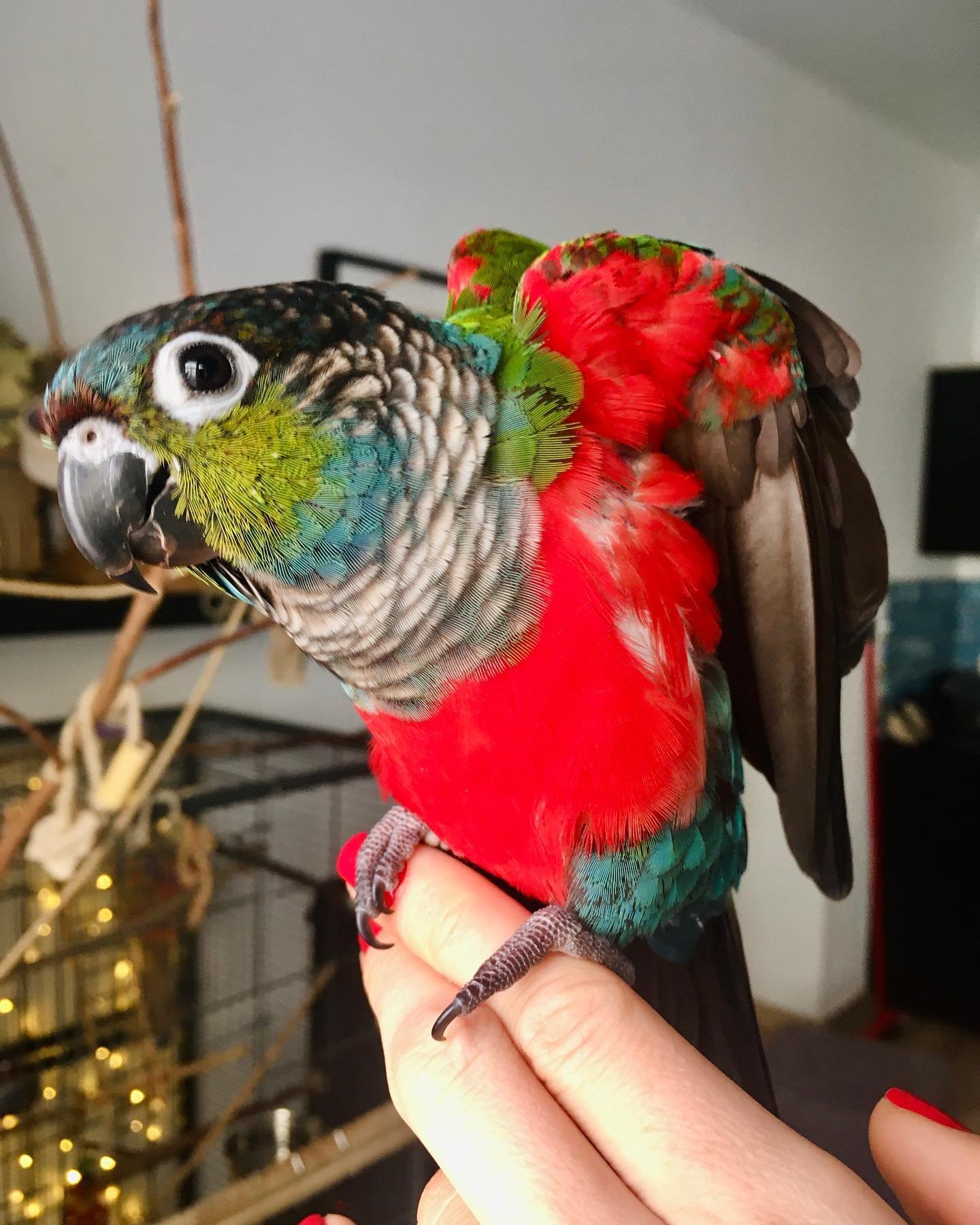
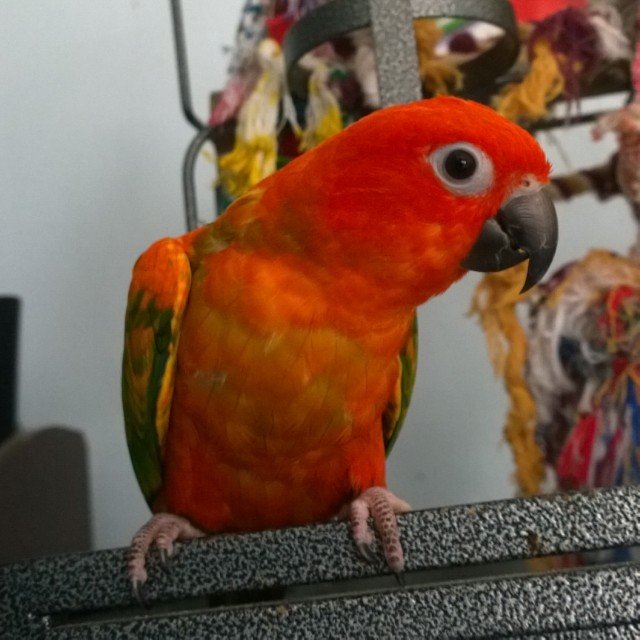
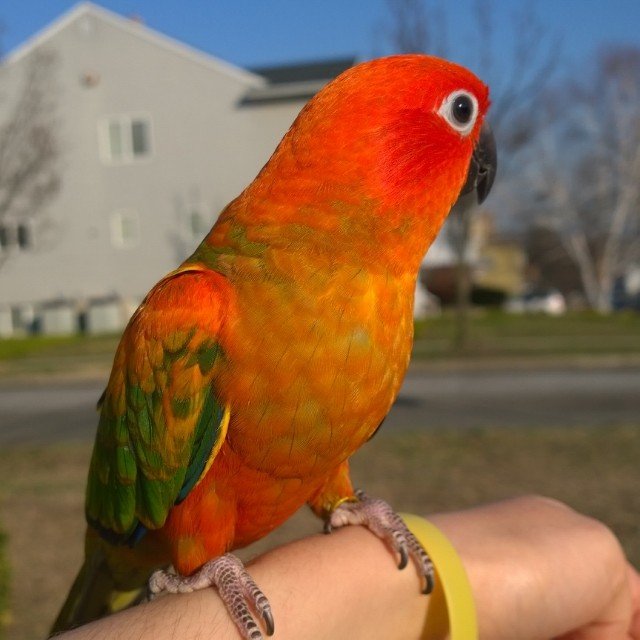
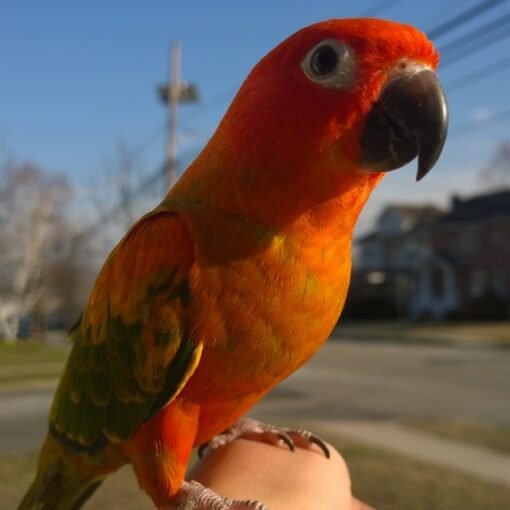
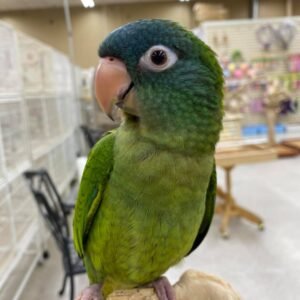
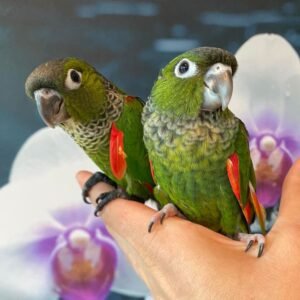
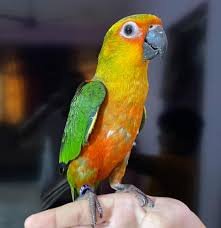

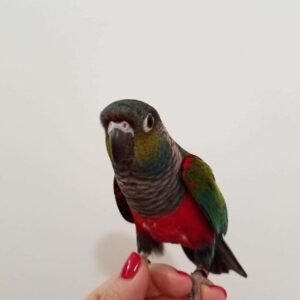
Reviews
There are no reviews yet.